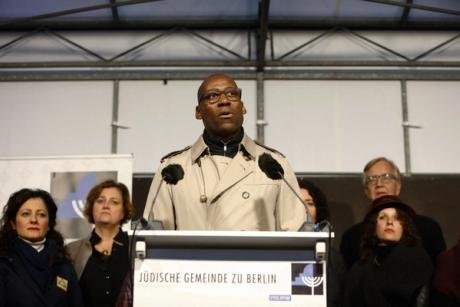
After fierce criticism from artists, the Berlin senate dropped a policy to make funding for cultural institutions and projects conditional on recipients signing an “anti-discrimination clause” just over a month after it was introduced.
Joe Chialo, Berlin’s culture senator, introduced the new anti-discrimination clause on 21 December. It required funding recipients to declare they are in favour of a “diverse society” and oppose “any form of antisemitism according to the International Holocaust Remembrance Alliance’s definition of antisemitism.”
“I must take the legal and critical voices that saw this clause as a restriction on the freedom of art seriously,” Chialo said in a statement. “Let there be no doubt: I will continue to fight for a Berlin cultural scene that is free of discrimination. The statement said the Senate plans to hold talks with cultural workers and institutions in the coming months to find a “unanimous ruling.”
Almost 6,000 cultural workers and artists—including Wolfgang Tillmans, Agnieszka Polska and Candice Breitz—had signed an open letter “for the preservation of the freedom of art and the freedom of expression.”
The letter specifically protested against the senate’s use of the IHRA’s definition of antisemitism, which it described as the subject of “controversial debate,” and said its inclusion in funding agreements represented “an absolute exception, a differentiation that does not exist for any other form of discrimination.”
The IHRA states that “antisemitism is a certain perception of Jews, which may be expressed as hatred toward Jews. Rhetorical and physical manifestations of antisemitism are directed toward Jewish or non-Jewish individuals and/or their property, toward Jewish community institutions and religious facilities.”
In a list of examples of antisemitism, the IHRA says, “Manifestations might include the targeting of the state of Israel, conceived as a Jewish collectivity. However, criticism of Israel similar to that leveled against any other country cannot be regarded as antisemitic.”
In their letter of protest, the Berlin artists and cultural workers said they feared the requirement to subscribe to this definition would “only serve to create an administrative basis for disinviting and cancelling events with cultural workers who are critical of Israel.”
“This also affects Jewish cultural workers in Germany who show solidarity with Palestine, who advocate for dialogue and peace-oriented solutions, and who are confronted with accusations of antisemitism by non-Jewish Germans,” they said, describing the situation as “shameful and absurd.”
Hamas’s terror attacks against Israel on 7 October and the Israeli military response in Gaza have given rise to a fraught debate over the limits of freedom of art in Germany after a number of arts institutions cancelled exhibitions because they viewed comments by the featured artists, often made on social media, as antisemitic.
The German Academy of Arts last year criticised “violations of civil liberties that are unacceptable for a democratic country” and warned against “hasty red lines drawn on the basis of political statements by artists.”
Amid accusations of antisemitism, the senate has withdrawn funding for Oyoun, a cultural centre in the Neukölln district, and asked the organisation to vacate its premises at the end of last year. Oyoun is fighting the decision in court.
Other cancellations last year included an exhibition of Breitz’s work at the Saarlandmuseum and Biennale für aktuelle Fotografie, a contemporary photo exhibition which was due to be held in Mannheim, Ludwigshafen and Heidelberg in March 2024. The show was scrapped after one of the curators posted content on social media that the cities’ authorities described as antisemitic.
Plans for the next Documenta, the vast contemporary art show that takes place in Kassel every five years, are in disarray after the finding committee responsible for selecting the next artistic director resigned en masse because one of its members was forced to withdraw. Ranjit Hoskoté left the panel amid pressure from German media and the government over a statement he had signed in 2019 that they viewed as antisemitic. The four remaining panel members said they did not see “appropriate conditions” for “diverse perspectives, perceptions and discourses” in Germany.









